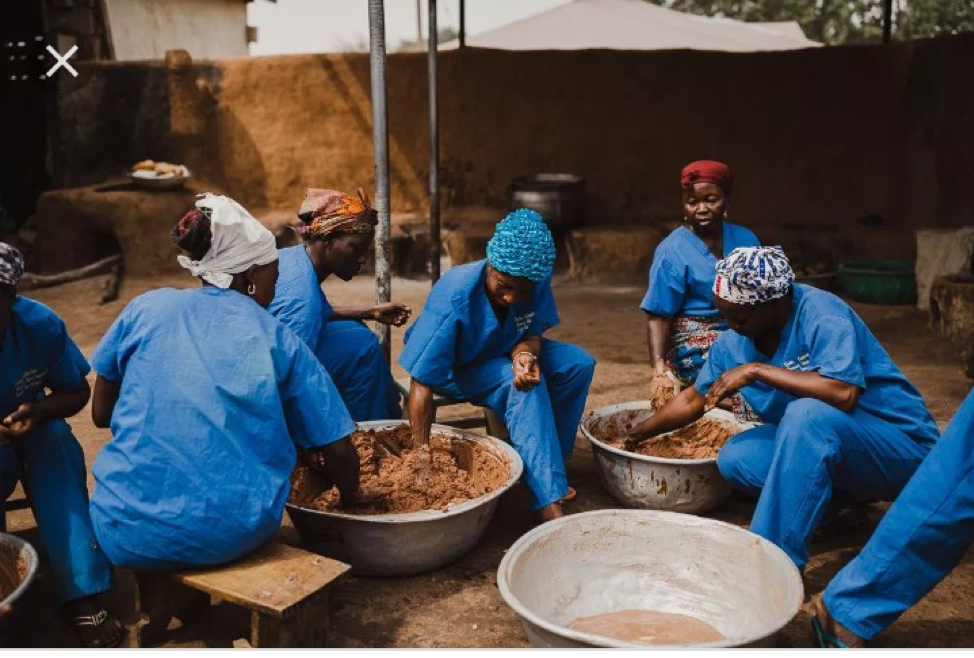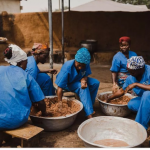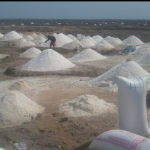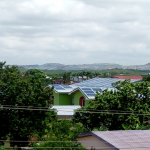COMMERCIAL PRODUCTS IN GHANA

Every nation desires to serve its citizens to the best of their knowledge. But definitely there’s no service that comes without efforts. Interestingly, Ghana is the 64th largest export economy in the world. Gold, diamond, bauxite, salt, Cocoa, Coconuts, Cashew, Shea butter and Shea nuts, Cement are some examples of top exports in Ghana. Destinations of most of these products include; India, Europe, China, Netherlands, the United States among others. Exports do bring into the country some income to facilitate in its development. Talking about exports, there are certain products that are making waves outside the countries which are not so much in use here in Ghana. These products are found in particular parts of the country. In as much as they are used for personal needs and sold in the country, these products are also patronized in places outside the country usually where they can’t be found in their raw states.
A glowing skin they say turns heads. We may not be so concerned about certain things when it comes to creating a first impression but some of these things like our skin matters a lot. Getting a good skin is seen differently by different people. Depending on priorities, people approach it differently. A guy said that there’s no way I would choose to marry a lady with extraordinary skin tone. Even though it’s nice, I won’t do it. When asked why he says its quiet expensive to live with such a person and his money would be in trouble when it comes to maintaining it.
Building up a good skin takes a lot of effort and time though some people naturally have very beautiful skins. Some people blame good skin on creams and various cosmetic products whiles some say it’s something that even our diet determines. From experience, people recommend products to friends based on their personal experience. This may or may not work depending on the skin type. Not everyone is also ready to see a dermatologist. The mention of avocado, honey, cinnamon, vinegar, argan oil, sheabutter and others come up whenever the topic of getting a radiant skin with natural ingredient comes up. In Ghana a lot of people use various things for their skin. Popular among them is sheabutter.
Sheabutter is a fat extracted from the shea fruit. In Ghana the shea tree is found in the three northern regions, the Brong Ahafo region and some parts of the Ashanti region. Basically most of the Sudan Savannah areas of Ghana produce shea butter. In the olden days it was used by a lot of people as a skin moisturizer especially in the rural areas. Along the line, it became popular due to the influx of foreign products. Now it has become very popular in and outside of Ghana and used for various Purposes.
In the Upper West Region where I lived before, I remember vividly, that the cooks in our canteen used shea butter and palm oil to prepare bean stew for us. The first time I saw this I actually couldn’t believe my eyes because the stew we were eating didn’t taste any different from stew prepared from just palm oil. From more enquiries I even learnt that the shea butter was a very nutritious oil. Shea butter according to the American Shea butter Institute is the skins best friend. Shea butter moisturizes and protects the skin against several skin diseases.
Production of shea butter has become one very popular business Ghana. Over the years, it has contributed substantially to the socio-economic development in Ghana. A lot of people in the North, especially the women are into this business. They go around during the time where the fruits are in season, pick the fruits, produce them into the butter and sell them. Some of the shea butter is bought by cosmetic companies and some also exported to countries like; Europe and North America.
There are several companies in Ghana into the Shea butter business. They are into the production of Shea butter on large scale either for the use of people personally or for export. Some also export just the nuts. They include companies like; Adin Craft Exports Enterprise, Savana Essence, Natural Treats Industries, Savana Gold, MGL naturals, Kosmetica Plus, Shea Natura Alagie and Fati’s Company Limited, Bosbel Vegetable Oil Limited and among others. There is also a company known as known as Pinnacle Trade Ghana Limited which has been established solely for the export of Shea butter into the global market. Most often the problem with some of the local producers is that they unable to export their products to certain places like Turkey due to the inability of the Ghana Standards Authority to provide them with appropriate certification for entry into Turkey though there’s great interest by the Turkish Consumers.
One other product that has risen to international heights is Cashew nuts. Cashew cultivation started in 1960 Cashew nut is produced from the cashew fruit which is found on the cashew tree. The cashew tress are found in the Central, Greater Accra, Brong-Ahafo, Northern, Upper West and the Upper East Regions, the fruit is predominantly cultivated by small holder farmers which makes about 88% of the entire cashew farmers in Ghana. In the year 2016, cashew nuts had its total export being 163,000 metric tonnes amounting to 224 million US Dollars.
Cashew nuts production has seen tremendous improvement since the 1983 with it being identified as one of the major non-traditional crops to be developed as part of Governments efforts to diversify the country’s export base.
The challenge the farmers face includes the absence of adequate systems, information system, lack of agricultural extension and support system. Cashew farmers have been worried about their inability to access competitive credit to boost production and the annual bushfire menace which continues to wreck cashew plantations.
Institutions like African Cashew Alliance (ACA) and African Cashew Initiative (ACi) have been operating in Ghana by providing varied intervention to the industry with ACA focusing on investment promotion, market linkages and exchange of information among stakeholders and ACi being more concerned with preparing farmers for specialty markets, training on good agricultural practices, quality and food safety standards. The farmers are usually both men and women.
Currently there are about 13 installed cashew processing plantation the country. Of the number, 12 of them are situated in the Brong Ahafo Region. The cashew business has opened doors for employment and created room for a lot of farmers to make more money. There’s also the Ghana Cashew Industry Association which acts as a supply chain body to among other things promote the interest of actors in the industry. Cashew nuts are exported to countries like the United States and India as well as some European countries.
Gold discovery in Ghana can be traced as far as the eighties. The places where gold is mined in Ghana is; Tarkwa, Obuasi, Kumasi and Bogoso. Though very difficult to extract, gold is one of the most precious minerals in the world and Ghana is among the few countries which produce gold. Before the colonization of Ghana by the British, the local communities in and around Obuasi were actively engaged in mining of reefs and panning gold from streams. Accounting for over 5% of Ghanaian GDP. The country has been one of the leading producers of gold in Ghana and actually the second to South Africa. UK is Ghana’s largest export partner. Ghana exports to other countries like EU and United States.











